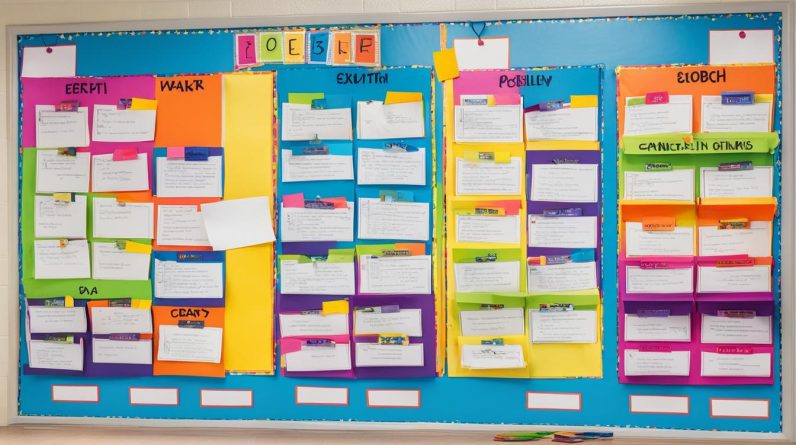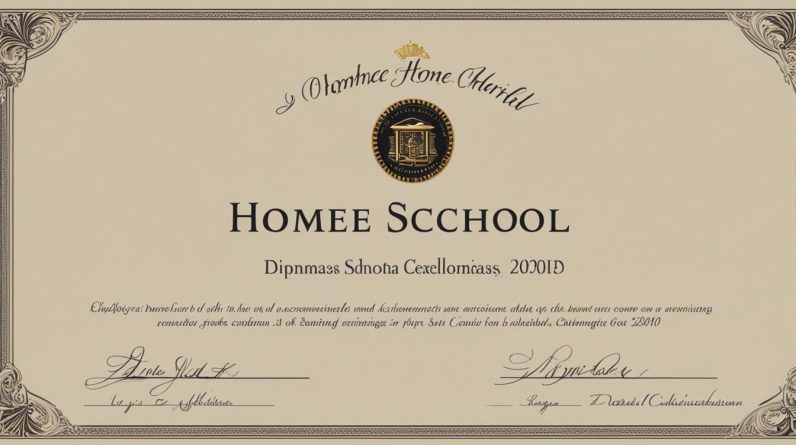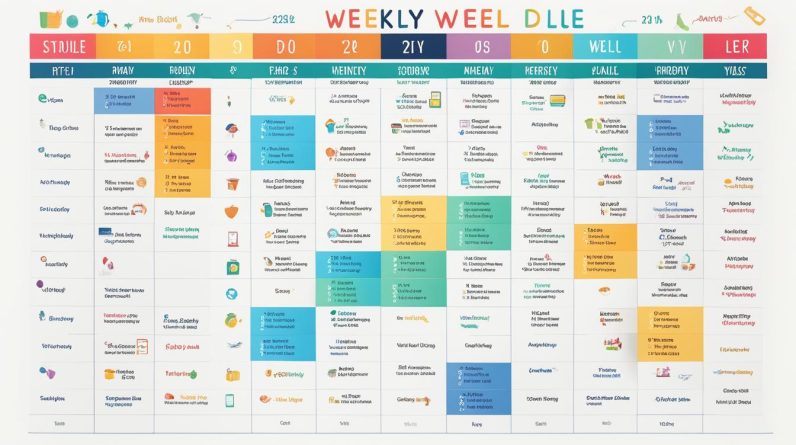In Virginia, parents must ensure that their child attends school in compliance with the state compulsory attendance law. Home instruction, also known as home schooling, is one alternative to school attendance. To homeschool in Virginia, parents must meet certain requirements and submit the necessary documentation to their local school division. The Code of Virginia offers different options for providing home instruction, including holding a high school diploma or meeting the qualifications of a teacher. Parents must also submit a notice of intent to home school, provide a list of subjects to be studied, and submit evidence of academic progress. It is important for homeschooling families in Virginia to be familiar with these regulations and fulfill the necessary requirements.
Key Takeaways:
- Virginia parents must ensure compliance with compulsory attendance laws.
- Home instruction is an alternative to traditional school attendance.
- Homeschooling in Virginia requires meeting specific requirements and submitting documentation.
- The Code of Virginia provides options for home instruction, including qualifications and educational standards.
- Parents must submit a notice of intent, a list of subjects, and evidence of academic progress.
Criteria for Providing Home Instruction
In Virginia, parents have several options for providing home instruction to their children. These options ensure that parents are equipped to provide a quality education for their homeschooled children in accordance with the Virginia homeschool curriculum guidelines.
- Holding a High School Diploma or Higher Credential: Parents can choose this option if they have a high school diploma or a higher credential.
- Meeting the Qualifications of a Teacher: Parents can meet the qualifications of a teacher as prescribed by the Virginia Board of Education. This option allows them to provide home instruction based on their educational qualifications.
- Providing a Program of Study or Curriculum: Parents can provide their child with a program of study or curriculum, which can be delivered through a correspondence course, distance learning program, or any other manner.
- Providing Evidence of Adequate Education: Parents can provide evidence that they can provide an adequate education for their child, even if they do not hold a high school diploma or meet the qualifications of a teacher.
These options give parents flexibility in choosing the method that best suits their abilities and resources while ensuring that their homeschooled children receive a comprehensive education that adheres to the Virginia homeschool curriculum guidelines.
If you’re still unsure about which option is best for you, consult the Virginia Board of Education or contact local homeschooling organizations for guidance and support.
Example Program of Study
| Subject | Curriculum |
|---|---|
| Mathematics | Saxon Math |
| English Language Arts | Explode the Code |
| Science | Apologia Science |
| Social Studies | Story of the World |
| Physical Education | Various sports and activities |
Note: This is just an example program of study. Parents can choose any curriculum or program of study that aligns with the Virginia homeschool curriculum guidelines and meets their child’s educational needs.
Having a well-planned program of study or curriculum is essential for providing a structured and comprehensive education to homeschooled children. However, it is also important to remain flexible and adapt the curriculum as needed to cater to your child’s individual interests and learning style.
Notice of Intent
Any parent who elects to provide home instruction in Virginia must annually notify their local school division by August 15 of their intention to instruct the child. The notice of intent (NOI) serves as an official communication to the school division, ensuring compliance with Virginia homeschooling requirements and allowing parents to exercise their right to homeschool in VA.
The NOI should include the chosen option for homeschooling, indicating the method through which the child will be educated at home. This option could be holding a high school diploma, meeting the qualifications of a teacher, providing a program of study or curriculum for the child, or demonstrating an adequate level of education provided by the parent.
If parents move into the school district or begin home instruction after the school year has started, it is essential to promptly notify the school division. Timely communication ensures a smooth transition and avoids any potential conflicts or misunderstandings.
While there is no specific form required for the NOI, some school districts may provide a standardized template for parents to use. Alternatively, parents can create their own notice, ensuring that it includes all the necessary information as per local homeschooling regulations.
It is highly recommended to submit the NOI via certified mail with a request for return receipt. This provides evidence of the parent’s intent to homeschool and proof of submission in case of any future disputes or inquiries. By following these steps, homeschooling parents in Virginia can confidently fulfill the requirement of submitting their notice of intent.
| Notice of Intent Checklist |
|---|
| Notify local school division annually by August 15 |
| Include chosen option for homeschooling |
| Provide proof of qualifications, if applicable |
| Submit notice promptly if moving into district or starting mid-school year |
| Consider using a certified mail service with a return receipt |
Benefits of Certified Mail with Return Receipt
Using certified mail with a return receipt when submitting the notice of intent offers several advantages:
- Evidence of Submission: The return receipt serves as proof that the notice was sent, received, and signed for by the school division, providing documentation of compliance with Virginia homeschooling requirements.
- Delivery Confirmation: Certified mail ensures that the notice reaches the intended recipient, eliminating any concerns about lost or misplaced documents.
- Security and Accountability: The certified mail service offers increased security and accountability, reducing the risk of disputes over whether the notice was received or sent within the required timeframe.
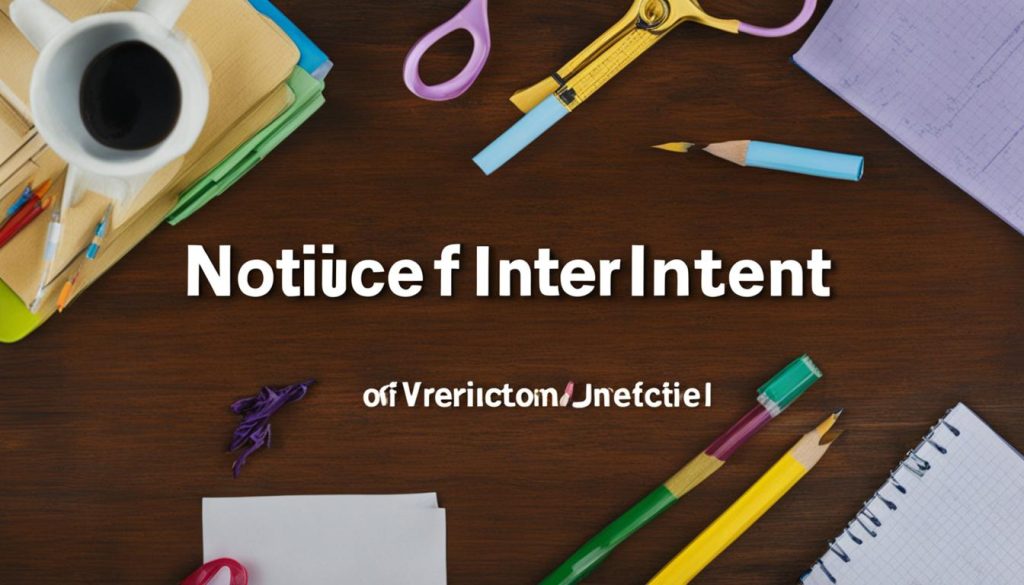
Evidence of Progress
The parent who provides home instruction in Virginia must submit evidence of the child’s academic progress to their local school division by August 1 following the school year. Demonstrating evidence of progress is an important aspect of meeting the Virginia homeschooling requirements and complying with the Virginia homeschool laws.
There are two options for providing evidence of progress:
- Nationally Normed Standardized Achievement Test: The first option is to provide evidence that the child has attained a composite score in or above the fourth stanine on a nationally normed standardized achievement test. Alternatively, an equivalent score on the ACT, SAT, or PSAT test can also be submitted as evidence of academic progress.
- Professional Evaluation or Assessment: The second option is to provide an evaluation or assessment conducted by a person licensed to teach or with a master’s degree or higher in an academic discipline. This evaluation or assessment should state that the child is achieving an adequate level of educational growth and progress.
Alternatively, a report card or transcript from a community college, college distance learning program, or home-education correspondence school can also be submitted as evidence of academic progress.
These requirements ensure that homeschooled children in Virginia are making appropriate educational progress and receiving a quality education in compliance with the Virginia homeschool laws.

Certified Tutor Provision
If you have a current Virginia teacher certification, you have the option to teach your children under the certified tutor provision in Virginia. This provision allows parents or non-parents with approved teacher credentials to provide instruction to their homeschooled children. You can choose to teach your child at home or outside the home, depending on what works best for you and your family.
Under the certified tutor provision, you are not required to undergo yearly assessments or submit notifications as long as your teacher credentials are up-to-date. This provision offers flexibility for homeschooling families who have a parent with teaching credentials and want to educate their children in accordance with Virginia’s homeschooling laws.
Whether you prefer traditional homeschooling methods or want to incorporate different teaching techniques, the certified tutor provision allows you to personalize your child’s education while following the legal requirements. It provides an alternative pathway for homeschooling families in Virginia to ensure their children receive a quality education.
Benefits of the Certified Tutor Provision
- No yearly assessments or notifications required
- Flexibility to choose instructional location
- Personalized education tailored to your child’s needs
- Opportunity to utilize your teaching expertise
With the certified tutor provision, you can combine your teaching credentials with the freedom and flexibility of homeschooling. This option allows you to play an active role in your child’s education, ensuring they receive a well-rounded and quality learning experience.
Note: The following table provides an overview of the certified tutor provision in Virginia:
| Requirement | Details |
|---|---|
| Qualifications | Hold a current Virginia teacher certification approved by the division superintendent |
| Instruction Location | Can be in or outside the home |
| Yearly Assessments | Not required |
| Notifications | Not required, as long as teacher credentials are up-to-date |
Religious Exemption Statute
In addition to other options, Virginia offers a religious exemption statute for families who hold sincere religious beliefs against sending their child to school. This exemption allows eligible families to meet the Virginia homeschooling requirements while aligning with their religious convictions.
To qualify for the religious exemption, the convictions must be genuinely rooted in religious beliefs and should not be driven by political, sociological, or philosophical views, or a purely personal moral code. Parents seeking this exemption must be prepared to provide proof of their convictions to a Virginia school board.
The religious exemption statute offers a legal pathway for families who wish to homeschool their children based on their religious beliefs. It acknowledges the importance of religious freedom in educational choices and provides an alternative for families who prefer homeschooling as a means to fulfill their religious obligations.
| Key Points | Benefits |
|---|---|
| Religious exemption statute | Allows families with sincere religious beliefs to homeschool |
| Convictions must be genuinely rooted in religious beliefs | Ensures the exemption is not based on personal or other non-religious grounds |
| Proof of convictions required | Provides transparency and accountability in the exemption process |
| Legal option to meet Virginia homeschooling requirements | Ensures compliance with state regulations while respecting religious freedom |
Image:

Homeschool Recordkeeping in Virginia
Homeschooling in Virginia requires adherence to specific recordkeeping practices to ensure compliance with Virginia homeschool laws and to facilitate future educational transitions. While the minimum requirements only involve submitting evidence of academic progress, it is highly recommended for homeschooling families to maintain comprehensive records of their homeschool activities.
Comprehensive recordkeeping serves as a valuable resource when enrolling homeschooled children in public schools or applying for college. By documenting the homeschooling journey, families can provide a thorough overview of their child’s education, showcasing their achievements, and facilitating a smooth transition.
The Benefits of Homeschool Recordkeeping
Recordkeeping provides the following benefits:
- Documentation for future educational endeavors
- Evidence of academic progress
- Facilitation of transferring to public school
- Aid in the college application process
Recommended Homeschool Recordkeeping
- Maintain a homeschool portfolio:
A homeschool portfolio acts as a comprehensive collection of educational materials and achievements. It can include:
- An overview of the curriculum
- Samples of assignments, quizzes, or tests
- Written work or projects
By assembling these materials, homeschooling families have concrete documentation to showcase the depth and breadth of their child’s education.
Other Essential Recordkeeping
In addition to the homeschool portfolio, it’s recommended to keep records of:
- Homeschool attendance
- Field trips or educational experiences
- Extracurricular activities
- Standardized test results (if applicable)
Recordkeeping serves as a powerful tool for evaluating progress, tracking accomplishments, and creating a comprehensive educational profile for homeschooled children.
Having detailed records allows for a smooth academic transition, provides evidence of compliance with homeschooling requirements, and showcases a well-rounded education. Therefore, consistent and detailed recordkeeping is essential for homeschooling families in Virginia.
Homeschool Graduation Requirements
Homeschooling in Virginia does not have specific guidelines for homeschool graduation. However, it is important for homeschooling families to prepare their homeschooled students for life after high school. Discussions about the student’s goals and ambitions are crucial in tailoring the homeschool curriculum. Whether the student plans to pursue college, enter the military, or start a career, their personal aspirations should guide the high school curriculum.
While there are no legal requirements for issuing a homeschool diploma in Virginia, homeschooling families can create their own student transcripts to showcase their child’s achievements and prepare them for their future endeavors. By documenting the completed courses, grades, and extracurricular activities, homeschooling students can present a comprehensive record of their education.
Creating a transcript can be a collaborative effort between the parent-teacher and the student. It is a valuable tool that can help universities, employers, or the military evaluate a homeschooled student’s qualifications. The transcript can contain information on the courses taken, grades received, standardized test scores, and any other relevant achievements or certifications.
Furthermore, homeschooling families can also explore participating in dual enrollment programs, online courses, or community college classes to earn college credits while still in high school. These experiences can enhance the student’s transcript and provide a smooth transition into higher education.
“The homeschool graduation requirements in Virginia may not be explicitly defined, but it is essential for families to prepare their homeschooled students for their future endeavors. By tailoring the curriculum, documenting achievements, and exploring additional educational opportunities, homeschooling families can equip their students to thrive in college, career, or military service.”
Enrolling in Public School after Homeschooling in VA
If you have made the decision to transition your child from homeschooling to public school in Virginia, it is important to follow the specific enrollment procedures of the school. While there is no formal requirement to notify the current school when transitioning to homeschooling, informing the school of your decision can help prevent any truancy questions or complications during the transition.
Prior to withdrawing your child from homeschooling, it is crucial to submit a notice of intent to homeschool and receive confirmation from the school. This ensures that you fulfill all necessary requirements and guarantees a smooth transition from homeschooling to public school.
| Enrollment Process | Details |
|---|---|
| 1. Contact the School | Reach out to the school where you intend to enroll your child and inquire about their specific enrollment procedures. |
| 2. Provide Necessary Documents | Prepare any documents required by the school, which may include proof of residency, birth certificate, vaccination records, and previous academic records. |
| 3. Attend Orientation | Attend the school’s orientation program, if required, to familiarize yourself and your child with the school’s policies, procedures, and expectations. |
| 4. Academic Assessment | Some schools may conduct an academic assessment or placement test to determine the appropriate grade level for your child. |
| 5. Meet with Guidance Counselor | Schedule a meeting with the school’s guidance counselor to discuss your child’s educational background, goals, and any specific needs. |
By following these enrollment procedures, you can ensure a seamless transition for your child from homeschooling to public school in Virginia.
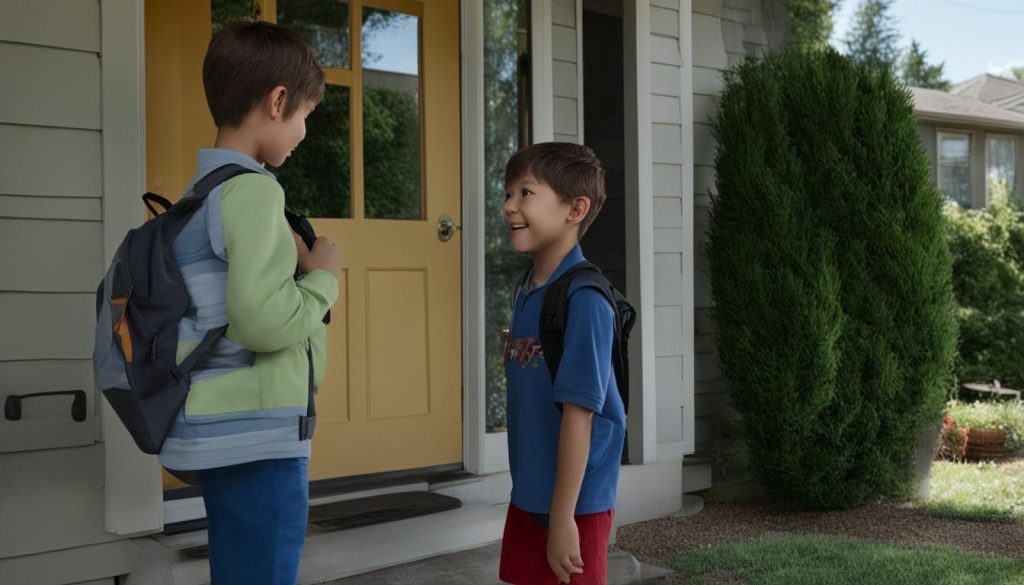
Additional Resources for Homeschooling in Virginia
In addition to the legal requirements, homeschooling families in Virginia can benefit from various resources and organizations that provide support and guidance. Here are some valuable resources to assist you on your homeschooling journey:
1. Home School Legal Defense Association (HSLDA)
The Home School Legal Defense Association (HSLDA) offers a wide range of resources, legal support, and advice for homeschooling families. They provide up-to-date information on homeschooling laws and regulations, homeschool curriculum options, and valuable tips for successful homeschooling.
2. The Virginia Home School Manual
The Virginia Home School Manual is a comprehensive guide that covers everything from preschool to high school and beyond. This manual provides detailed information on homeschooling requirements, curriculum choices, recordkeeping, testing options, and graduation requirements. It is an invaluable resource for homeschooling parents in Virginia.
3. Home Educators Association of Virginia (HEAV)
The Home Educators Association of Virginia (HEAV) is a non-profit organization that supports and serves the homeschooling community in Virginia. They offer legislative updates to keep homeschooling families informed about any changes in the law that may affect homeschooling practices. HEAV also provides resources, workshops, conferences, and networking opportunities for homeschooling families.
These additional resources can assist you in navigating the homeschooling journey successfully, providing you with the necessary support, information, and inspiration to create a fulfilling and effective educational experience for your children.
| Resource | Description |
|---|---|
| Home School Legal Defense Association (HSLDA) | The HSLDA offers legal support, resources, and advice for homeschooling families in Virginia. |
| The Virginia Home School Manual | A comprehensive guide covering all aspects of homeschooling, from preschool to high school and beyond. |
| Home Educators Association of Virginia (HEAV) | An organization that provides legislative updates, resources, workshops, conferences, and networking opportunities for homeschooling families. |
These resources will equip you with the knowledge and support needed to homeschool your children in Virginia effectively. Take advantage of these valuable resources to enhance your homeschooling journey.
Conclusion
In conclusion, homeschooling in Virginia requires parents to meet specific criteria outlined in the Virginia homeschooling requirements and comply with the Virginia homeschool laws. It is important for homeschooling families to understand these regulations and fulfill the necessary obligations to ensure a legally compliant and successful homeschooling journey.
Parents in Virginia have multiple options for homeschooling, including meeting specific educational qualifications, teaching under the certified tutor provision, or claiming a religious exemption. Each option provides flexibility and allows parents to tailor their child’s education in a way that aligns with their family’s values and educational goals.
With the right resources and knowledge, homeschooling in Virginia can provide a fulfilling and effective educational experience for children. It allows parents the opportunity to actively participate in their child’s education and create a customized learning environment that suits their child’s unique needs and interests. By staying informed, connecting with homeschooling communities, and utilizing available resources, homeschooling families in Virginia can navigate the homeschooling journey successfully and ensure their child receives a quality education.
FAQ
What are the criteria for providing home instruction in Virginia?
The criteria for providing home instruction in Virginia include holding a high school diploma or meeting the qualifications of a teacher, providing a program of study or curriculum, or demonstrating the ability to provide an adequate education for the child.
What is a notice of intent, and why is it required for homeschooling in Virginia?
A notice of intent is a document that parents must submit annually to their local school division to notify them of their intention to homeschool their child. It includes information about the chosen homeschooling option and proof of qualification.
How can parents provide evidence of academic progress for their homeschooled child?
Parents can provide evidence of academic progress by submitting standardized test scores, evaluations or assessments conducted by qualified individuals, or report cards or transcripts from approved educational programs.
What is the certified tutor provision, and how does it work for homeschooling in Virginia?
The certified tutor provision allows parents who have current Virginia teacher certification to teach their homeschooled child. The certification must be approved by the division superintendent, and instruction can take place inside or outside the home without yearly assessments or notifications.
How does the religious exemption statute work for homeschooling in Virginia?
The religious exemption statute provides an option for families with sincere religious beliefs against sending their child to school. To be eligible for this exemption, the beliefs must be non-political, non-sociological, and non-philosophical, and proof of the convictions must be provided to a Virginia school board.
What kind of recordkeeping is recommended for homeschooling in Virginia?
While the minimum recordkeeping requirement is the submission of evidence of academic progress, it is recommended for homeschooling families to maintain comprehensive records of their homeschool activities, including curriculum overviews, samples of assignments, and other relevant documents.
Are there specific graduation requirements for homeschooled students in Virginia?
Virginia homeschool law does not have specific guidelines for homeschool graduation. However, it is important for homeschooling families to tailor their curriculum to the student’s goals and aspirations, whether it be college, military service, or entering the workforce.
What are the enrollment requirements for homeschoolers transitioning to public school in Virginia?
If a homeschooling family in Virginia decides to enroll their child in public school after homeschooling, they must follow the specific enrollment requirements of the school. It is recommended to notify the current school of the decision and to submit the notice of intent before withdrawing the child from school.
Are there any additional resources available for homeschooling families in Virginia?
Yes, homeschooling families in Virginia can benefit from resources and organizations such as the Home School Legal Defense Association (HSLDA), the Virginia Home School Manual, and the Home Educators Association of Virginia (HEAV), which provide support, legal advice, and legislative updates.
What are the Virginia homeschooling requirements in general?
The Virginia homeschooling requirements include meeting certain criteria for providing home instruction, submitting a notice of intent, providing evidence of academic progress, complying with vaccination requirements, and following specific procedures for enrollment or graduation if applicable. It is important for homeschooling families in Virginia to understand and fulfill these requirements.

